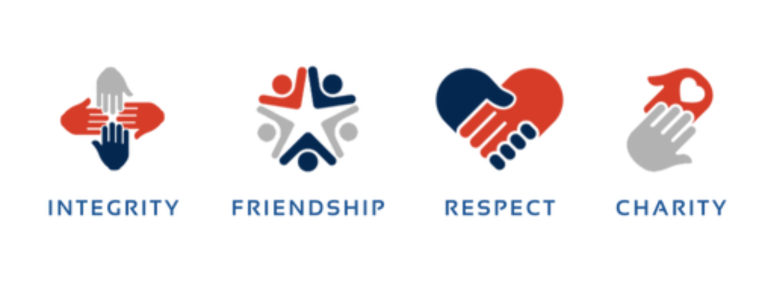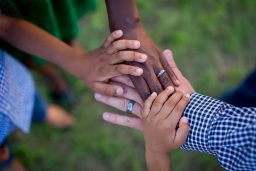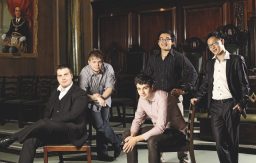




What is Freemasonry?
Freemasonry is one of the oldest social and charitable organisations in the world, Freemasonry’s roots lie in the traditions of the medieval stonemasons who built our cathedrals and castles.
It is here that a number of the famous elements of Freemasonry find their roots. In the medieval era, stonemasons often travelled around to find work in different locations. To demonstrate their level of qualification, they would use grips, words and signs in order to distinguish themselves from unqualified builders.
Freemasonry uses building analogies to teach members how to lead productive lives that benefit the communities that they live in. In the medieval era, stonemasons wore aprons and gloves to protect themselves while working on shaping rough pieces of stone, but in today’s society Freemasons meet to build friendships and communities rather than cathedrals and castles.
Guiding principles of Freemasonry
For Freemasons, there are four important values that help define their path through life: Integrity, Friendship, Respect and Charity. In today’s world filled with uncertainty, these principles ring as true now as they have at any point in the organisation’s history.
What happens at a Lodge meeting?
Freemasonry is organised in smaller units of members, called Lodges, where meetings are held, and members meet together. A Freemason Lodge is a place where members will spend a significant part of their journey in Freemasonry and each member can freely choose the Lodge they wish to be part of.
Lodge meetings are typically held in two parts. The first involves more administrative procedures, such as proposing and balloting for new members and receiving news about charitable fundraising. The second part focuses on ceremonies, which might relate to areas such as the admittance of new members or the installation of the Master of the Lodge and his officers – a process made up of three degrees, or stages, each marked by a special ceremony.
Our ceremonies are based around three principles that are still taught in our ceremonies today: look after those less fortunate, improve yourself and live life well so as to be remembered for the right reasons.
True to the sense of friendship and togetherness among Freemasons, meetings are also social events, providing an occasion for members to dine together. Outside of the Lodge, activities include community fundraising and volunteering activities, as well as a varied programme of events where spouses, partners and families are welcome.
The Three Degrees of Freemasonry
When a person is initiated into Freemasonry, they complete the First Degree. At this point, they become an ‘Entered Apprentice’. The First Degree ceremony reminds us that all are equal – it is the responsibility of those that do well to look after those less fortunate.
Upon completion of the Second Degree, a member becomes a ‘Fellowcraft Freemason’. This encourages members to better themselves through education and focuses on self-development.
After this, the member will then undertake the Third Degree. This ceremony teaches them how to use their life wisely and be remembered for the right reasons. On completion, they become a Master Mason.
Our Mission Statement
What We Are (Purpose)
We are a unique members’ organisation that has thrived for over 300 years. Having no political or religious affiliations, we comprise members of all ages, races, religions, cultures and backgrounds. We meet in our individual Lodges throughout the country where we have ceremonial traditions which encourage us both to be more tolerant and respectful and actively to fulfil our civic and charitable responsibilities; we also make time to eat, drink and meet together, and form lifelong friendships.
What We Aim For (Vision)
To attract those from all backgrounds and walks of life, enabling them to develop into more thoughtful and confident people. To inspire and challenge them to practise the core values we celebrate – Integrity, Friendship, Respect, Charity – in their private and public lives. To cement our reputation as a force for good in our communities and society at large and as a thriving organisation that people aspire to join.
How Will We Achieve This (Mission)
Over the next seven years, we will enhance our reputation as a thriving organisation that people aspire to join and broaden our membership across all age groups.
© Copyright Wenning Lodge Bentham 2023. All rights reserved.
We need your consent to load the translations
We use a third-party service to translate the website content that may collect data about your activity. Please review the details and accept the service to view the translations.
